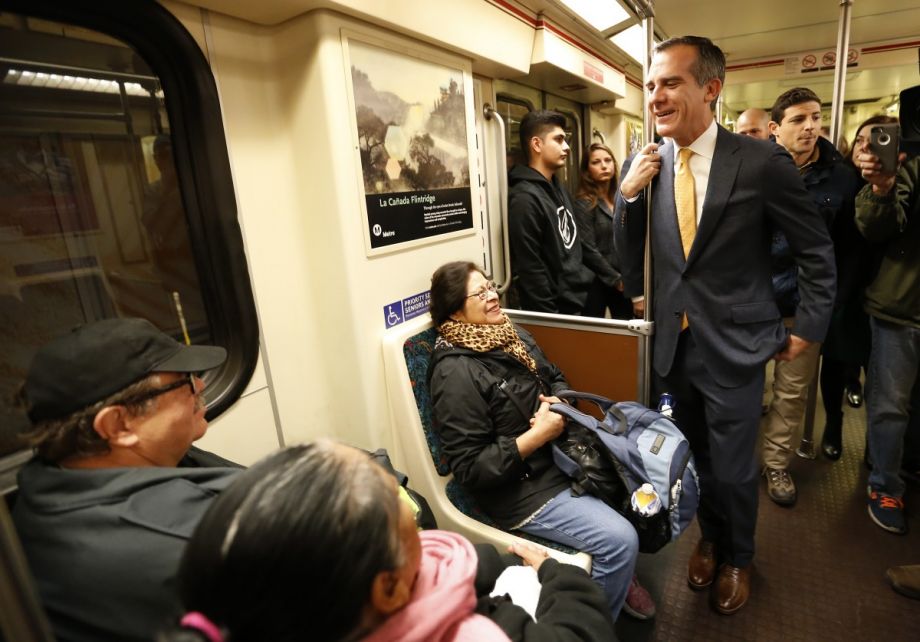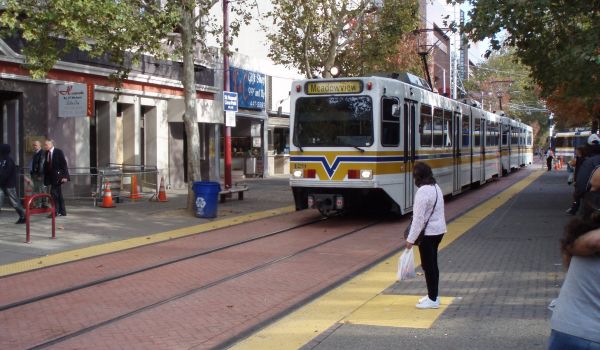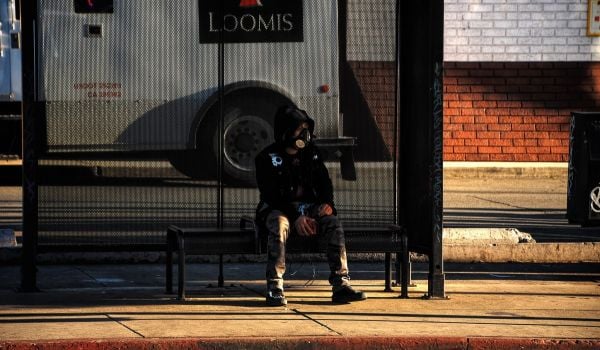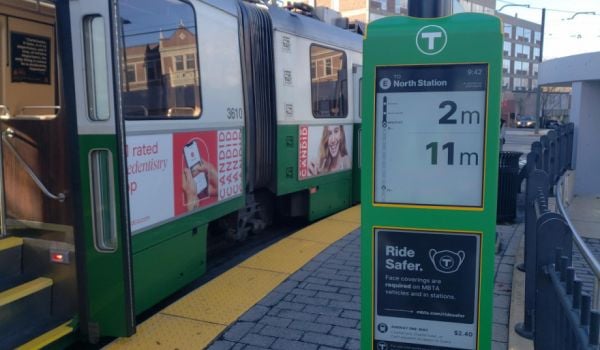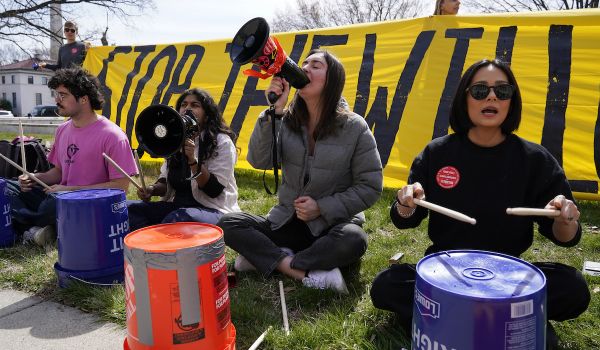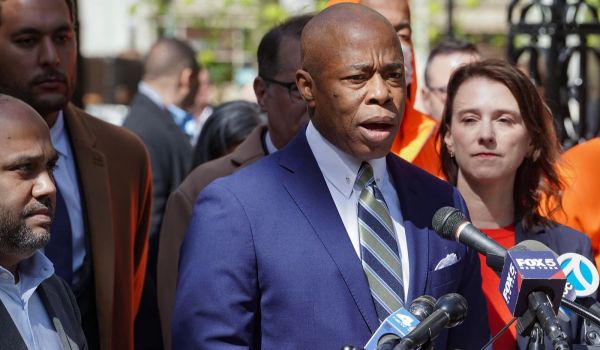Elaine Chao is unlikely to receive much resistance tomorrow during a Senate vote on her confirmation as secretary of transportation. The longtime Washington, D.C., insider — Chao was labor secretary under George W. Bush and deputy transportation secretary under George H.W. Bush — is among the least controversial of President Donald Trump’s cabinet nominees.
Her confirmation will be a rare piece of straightforward federal transportation news after months of speculation about what Trump’s $1 trillion infrastructure package might look like and how he would pay for it. Adding to the confusion, Senate Democrats released their own trillion-dollar infrastructure plan last week, and reports have been circulating that Trump’s budget proposal will drastically slash federal transit funding.
The latter piece of news comes from the Heritage Foundation’s Blueprint for Balance. The far right think tank’s so-called “skinny budget” proposal takes a draconian approach to federal investment with calls to eliminate over $10 trillion in federal spending over the next decade. Arguing that transit should be a local concern and that most people choose to drive in America, the Blueprint eliminates the Federal Transit Administration, TIGER grants, federal funding for Amtrak and the D.C. Metro system, the New Starts transit program and much more. The Hill reports that Trump transition team members and former Heritage staffers Russ Vought and John Gray are shaping a budget that would follow the Blueprint’s recommendations.
Unsurprisingly, slashing federal funding would have a devastating long-term impact on local transit. “It would be massively disruptive and absolutely a job killer,” says Jon Orcutt, communications and advocacy director at urban mobility nonprofit TransitCenter.
The FTA disburses grants to local municipalities for capital transit projects, both for improving existing infrastructure and building new. Larger transit agencies such as New York’s Metropolitan Transit Authority and Los Angeles’ Metro tend to rely less on federal funding than smaller agencies, but the amount varies significantly year to year depending on the number of capital projects underway in a given city.
The FTA’s Federal Transit Database provides information of city transit agencies’ 2013 and 2014 budgets. It gives a snapshot of how much agencies rely on federal funding for their capital spending.
In 2014, for example, federal funding accounted for 11.4 percent of Los Angeles’ capital spending. That same year it accounted for 23.4 percent of Seattle’s Sound Transit agency’s capital spending, 29.3 percent of Houston’s and 54.7 percent of Boston’s. All told it’s billions of dollars local agencies would have to try and come up with themselves (and realistically, could not).
Most transit agencies I reached out to were unwilling to speculate on the impact of losing federal support. L.A. Metro spokesperson Kim Upton says, “Federal funding is a major component of our transportation system, so we will be following these developments closely including what, if any, impacts they could have on our projects.”
Granted, a budget proposal is just that: a proposal. Trump’s budget will need congressional approval and some transportation experts are confident Congress will spare transit the ax.
“I wholeheartedly believe this will not happen,” says Adie Tomer, a Brookings Institution Metropolitan Policy Program fellow. “I can’t put it at zero chance. But the reason I don’t think it’s going to happen is transit is so vital and touches every single state and congressional district in the country. There’s no member of Congress who’s not going to have their phone start ringing wildly off the hook if they ever really put something like this on the table.”
Even if Heritage’s doomsday transit funding scenario did come to pass, Tomer points out, the current funding established by 2015’s $305 billion FAST Act is protected for another four years.
“This can’t happen tomorrow. You can’t just bleed the FTA dry,” he says.
But this isn’t the first time transit funding has been in the crosshairs of conservative politicians. For example, in 2012, House Republicans tried to eliminate a dedicated portion of gas tax revenue, redirecting transit’s only federal funding source to highway spending.
“Republicans have taken aim at eliminating FTA since 2011 when the Tea Party movement started,” Orcutt says. But, he agrees with Tomer that transit often garners bipartisan support. “The people who come to the rescue and have been swing votes in the past are suburban Republicans whose high-earning constituents wouldn’t be able to get to work from the suburbs to their downtown jobs without transit.”
Likely in anticipation of the coming transportation funding fight, the Senate Democrats’ $1 trillion infrastructure package includes hundreds of billions to modernize, repair and expand transit and a $10 billion expansion of the TIGER program. It also takes a fairly status quo approach to roads and highway spending.
The proposal has to be taken with a very large grain of salt since it provides no specifics on funding such massive investments, but Orcutt says, “as a broad brush it looks great. It’s a more balanced approach between roads and transit than we’ve seen in a long time.”
The issue is a long way from being settled. Trump is expected to release a budget proposal within his first 45 days in office. After that it heads to Congress for debate and amendments.
And though he remains mostly sure that federal transit funding is safe, Tomer says, “even if you don’t think it’s going to move, it’s important to pay attention to see how this affects real proposals in the future.”

Josh Cohen is Crosscut’s city reporter covering Seattle government, politics and the issues that shape life in the city.
Follow Josh .(JavaScript must be enabled to view this email address)

